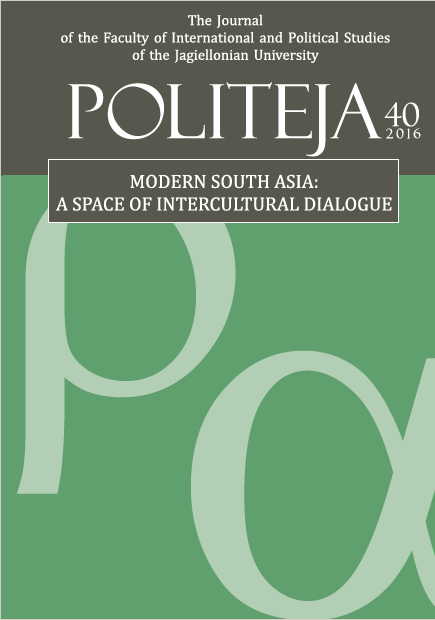Interpreting the legacy of partition in the subcontinent: Indian and Pakistani perspectives
Interpreting the legacy of partition in the subcontinent: Indian and Pakistani perspectives
Author(s): Shantanu ChakrabartiSubject(s): Politics / Political Sciences, Politics, Political Theory
Published by: KSIĘGARNIA AKADEMICKA Sp. z o.o.
Keywords: Partition; India; Pakistan; ethnicity; security; communalism; South Asia; imperialism; conflict
Summary/Abstract: The twentieth century partitions, it has been argued, have been essentially the by‑products of three interlinked global developments: (a) decolonisation; (b) democratisation and the (c) Cold War dynamics. The partition of the Indian subcontinent, in particular, bore the imprint of the maelstrom produced by the intertwining of these three forces. The process of partition in South Asia did not only involve simple division and reorganisation of territories but was accompanied by devolution and indigenisation of political institutions and governance, placing partition at the heart of the process of nation‑state formation. In this sense, the longue duree process of the partitioning of the subcontinent has continued to cast its long shadow over the nation‑building process leading to internal discrepancies and the development of regional dynamics, often competitive and conflictual in nature.
Journal: Politeja - Pismo Wydziału Studiów Międzynarodowych i Politycznych Uniwersytetu Jagiellońskiego
- Issue Year: 13/2016
- Issue No: 40
- Page Range: 21-29
- Page Count: 9
- Language: English

